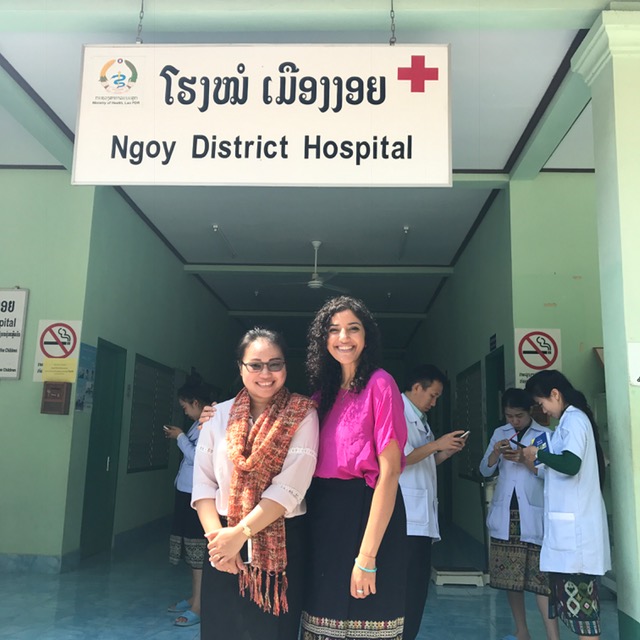Six months in the life of a Laos Clinical Education Fellow
Paediatrician in training, Marianne Safe spent six months in Laos as a Clinical Education Fellow with the Centre for International Child Health (CICH)Laos Program, led by Dr Amy Gray. Marianne focused on improving the quality of paediatric care and training in select rural hospitals dotted around the country. She has generously agreed to share her experiences with us so that those considering becoming a fellow can get a taste of the realities of the work.
CICH is part of the University of Melbourne, Department of Paediatrics.

A tiny book to enhance the care of tiny patients
To improve the quality of paediatric staff training and patient care, the CICH Lao Program focused on training paediatricians in the use of the World Health Organisation (WHO) Pocketbook of Hospital Care for Children. The Pocketbook is an essential guidebook for paediatricians, providing evidence-based directions for treating sick children.
Dr Amy Gray has been working with the University of Health Sciences, Laos to improve care for sick children in hospitals since 2009. A significant focus of this work has been on training paediatricians in the use of the Pocketbook guidelines and making sure that they are regularly used.
The CICH Lao program works so well because local paediatricians run the program, while the overlapping roster of Fellows maintains the momentum of program activities. I continued from the Fellows before me, working with Lao Paediatricians to embed the use of the Pocketbook throughout select district hospitals and primary health services.
As well as conducting training, I would attend daily rounds in the paediatric ward and conduct bedside teaching with paediatric residents.
The project continues to expand and progress. Lao staff and the Fellows that came after me have now started evaluating the effectiveness of the Pocketbook guidelines in improving patient care. Evaluation involves a central Lao Paediatrician and a Program Fellow making regular hospital visits to provide coaching, feedback, and supervision on the implementation of three program areas:
-WHO Pocketbook
-Early Essential Newborn Care
-Oxygen therapy
Current Fellows are also researching improvements in the quality of the paediatric cancer service and medical education at the University of Health Sciences, Laos.
Gain experience teaching, but also learning
There is so much to learn from communities overseas, which is what excites me most about a career in global child health.
Though I’m still learning so much about global health, one of the things I appreciated was the importance of forming mutually respectful relationships with local health workers. Because we became colleagues we were better able to learn from and encourage each other.
Being a Fellow showed me that there can be a huge difference between teaching, training, and facilitation. It’s so easy to slip into a teaching style that only allows a one-way transfer of information.
In fact, I have learned so much from my Lao colleagues; I now feel that it’s better to be open minded and see the process as one of sharing knowledge and skills.
For those starting out, the best piece of career advice I have been given is to be open and adaptable to new ideas. I think most people who have been in this field will be up for having a coffee to share their experience, take them up on it!